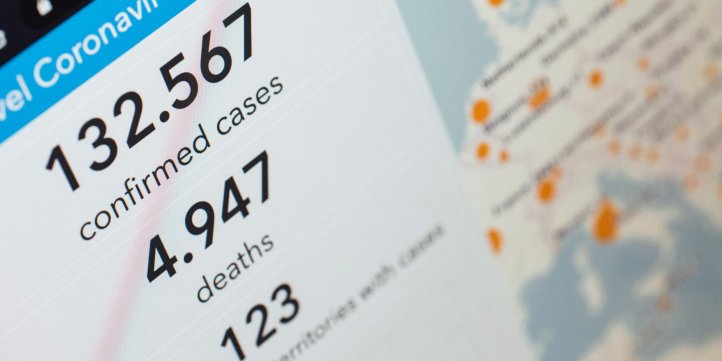RIDDOR and Coronavirus: How to Remain Compliant

Remaining 100% compliant with COVID-19 legislation isn’t always easy, especially as there are many different regulations that must be adhered to today. For example, while a business may be taking appropriate measures to operate within a COVID-secure manner, they may be failing to properly report instances of possible occupational exposure. This is likely due to the many complexities surrounding COVID-19 reporting.
Here, we aim to clear up the confusion around COVID-19 reporting in the workplace.
Is COVID-19 a Reportable Disease Under RIDDOR?
Yes. However, COVID-19 is only considered to be a reportable disease under the Reporting of Injuries, Diseases, and Dangerous Occurrences Regulations 2013 in specific instances. This is creating a great deal of confusion, and the Health & Safety Executive states that this confusion is resulting in ‘widespread under-reporting of cases in RIDDOR’.
Failure to report cases and deaths is a criminal offence. However, it is not always necessary to make a report. So just when do you have a responsibility to act?
There are three instances in which you must report COVID-19 under RIDDOR:
1. Occupational Exposure to Disease
A ‘Case of Disease’ report must be filed where there is reasonable evidence to suggest that an employee has been directly exposed to the virus within the workplace setting.
2. Death Resulting from Occupational Exposure
A ‘Work-Related Death Due to Exposure to a Biological Agent’ report must be filed within 10 days of death if there is reasonable evidence to suggest that an employee has passed away as a direct result of exposure to the SARS-CoV-2 virus at work.
3. Transmission Due to Accidents or Events
A ‘Dangerous Occurrence’ report must be filed if there is reasonable evidence to suggest that an accident, incident, or other usual event within the workplace has resulted in the release of the virus into the environment, or facilitates transmission.
All three of these reports can be filed online through the HSE website.
When Does COVID-19 Not Need to be Reported?
There are two situations in which cases of COVID-19 (and related deaths) within the workplace do not need to be reported under RIDDOR. The first is when there is no clear evidence that can connect a case or death with the occupational setting. For example, if a worker has recently returned from a high-risk destination, and there are no other cases within the workplace, it is reasonable to attribute the case to travel.
The second instance is when cases (and related deaths) occur within the workplace, but are not due to occupational activity. For those working within the hospitality industry, for example, cases amongst guests do not need to be reported under RIDDOR. Similarly, cases amongst diners are not required to be reported by restaurants.
How Many Cases Have Been Reported Under RIDDOR?
Since 10th April, more than 8500 cases of COVID-19 have been reported under RIDDOR. This figure includes 125 related deaths. The good news, however, is that work-related cases appear to be declining. At the end of April, COVID-19 RIDDOR reports hit a peak of 1183 per week, while this dropped to 160 per week by July. The decline could be attributed to confusion over reporting regulations, however it is understood that organisations are putting more protective measures in place, such as maintaining social distancing where possible and requiring employees to wear suitable PPE such as face masks and visors which have been shown to be instrumental in slowing the spread.





